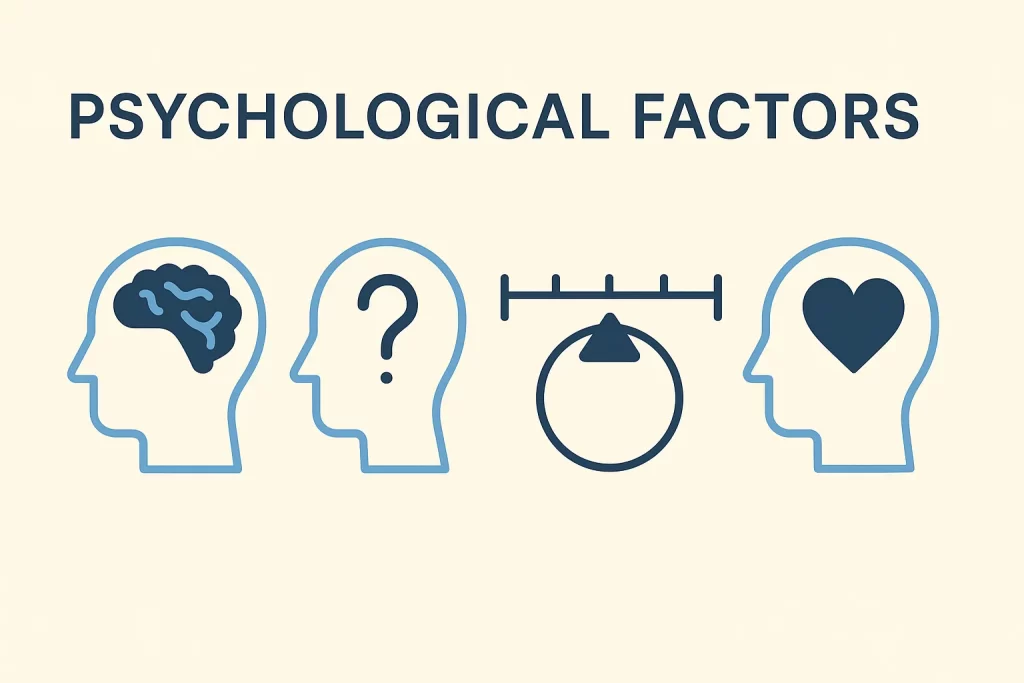Table of Contents
In today’s fast-paced world, many people are experiencing a shift in how they approach basic activities, and eating is no exception. More and more individuals report feeling too lazy or uninterested in preparing and consuming meals. While it might seem surprising, the issue of people feeling “too lazy to eat” has become increasingly prevalent in modern society.
But why is this happening? Why are so many people, especially in developed countries, finding it difficult to make time for meals or even feel the urge to eat?
In this blog post, we’ll dive into the reasons behind why some people struggle with eating, explore the psychological and societal factors involved, and discuss ways to regain a healthy relationship with food.
Why Are People Too Lazy to Eat?
Here is a Quick answer,
People often feel too lazy to eat because of busy lifestyles, digital distractions, emotional struggles like depression or stress, and the rise of convenience culture. Fast food, delivery apps, and hectic schedules make cooking feel like a burden. Psychological issues, lack of motivation, and nutritional deficiencies also play major roles in reducing the desire or energy to prepare and consume meals.
The Rise of Convenience Culture
One of the main contributors to the phenomenon of people feeling “too lazy to eat” is the rapid growth of convenience culture. In our modern world, everything is designed for immediacy and ease, from fast food to ready-to-eat meals that require minimal preparation.
Technology, the rise of food delivery apps, and ready-to-cook kits have made food more accessible than ever before.
But, ironically, the availability of convenient food options might be one of the reasons why people are less motivated to actually prepare a meal or even eat at home.
With fast food restaurants, delivery services, and even snacks readily available, the act of sitting down to prepare a nutritious, home-cooked meal can feel like too much of a hassle.
The laziness to eat might stem from the overwhelming number of options, combined with the belief that food should be quick and effortless, leading many to skip eating altogether or choose less healthy options simply because they require less effort.
1. Psychological Factors: Lack of Appetite and Motivation

For some individuals, the feeling of being “too lazy to eat” may be connected to psychological factors, including depression, stress, or anxiety. These emotional conditions can lead to a lack of motivation to care about one’s diet and eating habits.
1.1 Depression and Appetite Loss
Depression is often linked to a significant loss of appetite. People experiencing depression may feel fatigued, disinterested, or emotionally drained, leading to difficulty in finding the energy or motivation to prepare meals. Additionally, the emotional toll of depression can lead to a disinterest in food altogether, leaving individuals to feel as though eating is not a priority.
1.2 Stress and Overwhelm
On the other hand, stress—whether from work, relationships, or life circumstances—can cause people to feel overwhelmed, leading them to skip meals or forget to eat altogether. In busy times, preparing food might seem like just one more task in an already packed schedule.
Many people, when stressed, may opt to “skip” eating, not out of laziness, but because their minds are focused on other tasks, making food feel like a lesser priority.
1.3 Lack of Motivation to Eat Healthy
A lack of motivation can also result from poor eating habits or a lack of interest in healthy food. When eating is not perceived as enjoyable or rewarding, people may be less likely to go through the effort of cooking a nutritious meal. Additionally, individuals who rely on processed or unhealthy foods may struggle with the energy or motivation to prepare fresh meals.
2. The Impact of Modern Lifestyles: Busy, Overloaded, and Time-Starved
In today’s world, many people are constantly juggling multiple responsibilities—whether it’s work, family, or personal commitments. Time constraints and busy schedules often lead to people skipping meals or eating less regularly.
2.1 The Fast-Paced Work Culture
With demanding jobs, long hours, and little downtime, people often push meal times to the side in favor of productivity. In some high-pressure work environments, employees are encouraged to work through lunch or may feel guilty about taking a break to eat.
As a result, skipping meals becomes a norm, and people begin to feel that eating is a luxury they don’t have time for.
2.2 Disconnected Meal Times
In the hustle and bustle of life, people are often eating in fragmented time slots or eating meals in front of screens (TV, computer, phone). This can reduce the enjoyment of eating and make it feel like a chore. Mindless eating can also contribute to a lack of motivation or laziness, as people don’t feel the same sense of pleasure or importance in meal times that they once did.
2.3 Convenience of Snacking
The convenience of snacks and small meals that can be eaten quickly without much preparation also plays a role in the decline of full, balanced meals. Many people end up grazing throughout the day rather than sitting down for structured meals, and may find themselves too full, or too distracted, to eat a proper meal when the time comes.
3. The Digital Age and Social Media Influence
In the age of social media, streaming platforms, and constant connectivity, it’s easy for people to lose track of time or prioritize digital interactions over physical needs, like eating.
3.1 Digital Distractions
Scrolling through social media, binge-watching shows on Netflix, or playing video games can easily lead to neglecting physical needs like hunger. The urge to continue enjoying digital entertainment can distract people from preparing meals or sitting down to eat. In these cases, food may become an afterthought.
3.2 Body Image and Social Pressures
In some cases, people may feel pressure from society’s standards of beauty to reduce food intake, especially in a time when extreme dieting trends or body image issues are prevalent. These societal pressures can result in eating disorders, disordered eating habits, or a lack of interest in eating altogether.
For some, the desire to maintain a certain physique may outweigh the need to nourish the body properly.
4. Nutritional Deficiencies and Lack of Energy
Many individuals who feel too lazy to eat may not realize that their lack of appetite or inability to find the energy to eat is a result of nutritional deficiencies.
For example, deficiencies in vitamins, minerals, or iron can lead to fatigue and low energy, making it even harder to feel motivated to prepare meals.
Eating a balanced diet is essential for maintaining physical and mental energy. Without proper nutrition, people can find themselves in a cycle of exhaustion, which makes eating seem like an insurmountable task.
5. Solutions: How to Overcome the “Laziness” of Eating
If you or someone you know is experiencing difficulty eating due to laziness or lack of motivation, there are several steps you can take to regain a healthier relationship with food:
5.1 Simplify Meal Prep
Try simplifying your meal prep by choosing easy-to-make meals that require minimal effort. Meal prep can also help ensure you always have something nutritious on hand, reducing the effort needed to cook when you’re hungry.
5.2 Set Regular Meal Times
Incorporating regular meal times into your daily schedule can help you stay on track and prevent skipping meals. Consider setting alarms or reminders to help you stay mindful of your meals.
5.3 Focus on Mindful Eating
Rather than eating mindlessly in front of a screen, make a conscious effort to enjoy your meals. Take the time to appreciate the flavors and textures of your food. Mindful eating can increase your enjoyment of food and make meal times feel less like a chore.
5.4 Address Emotional or Psychological Barriers
If psychological issues like stress, anxiety, or depression are contributing to your difficulty with eating, it may be helpful to speak with a professional. Therapy, mindfulness practices, and stress management techniques can help you regain a healthier relationship with food.
Conclusion: Why People Are Too Lazy to Eat and How to Break the Cycle
While it may seem strange to feel “lazy” to eat, this phenomenon is a result of many complex factors, including modern life pressures, digital distractions, and emotional struggles. It’s important to recognize the underlying reasons for this behavior and take steps toward reclaiming the joy of eating.
By simplifying meal preparation, addressing emotional or psychological barriers, and being mindful of the nutrients your body needs, you can break free from the cycle of laziness and develop a healthier relationship with food.

